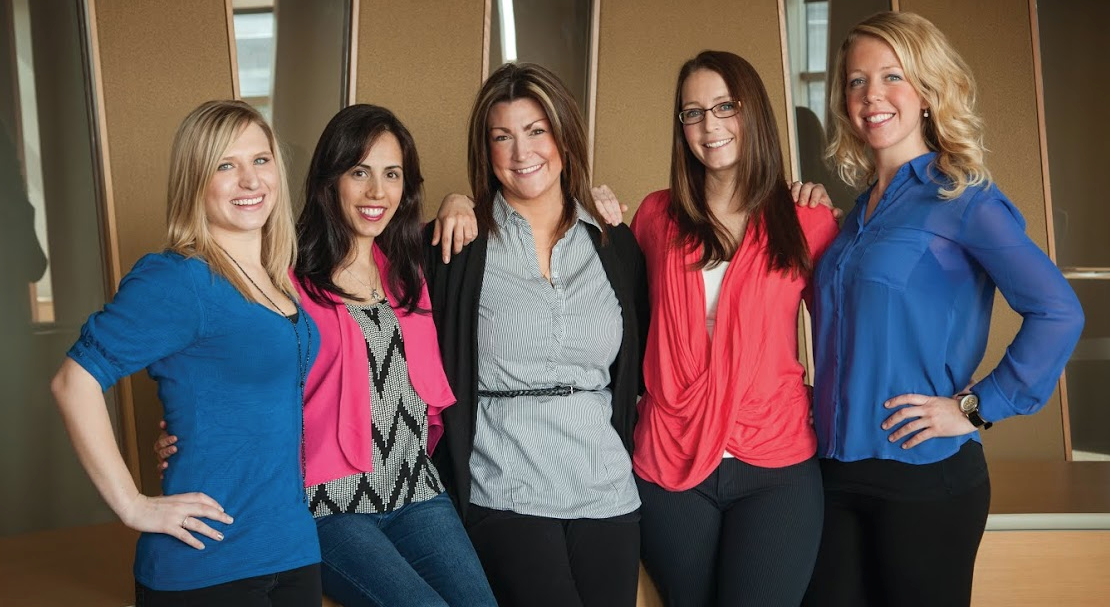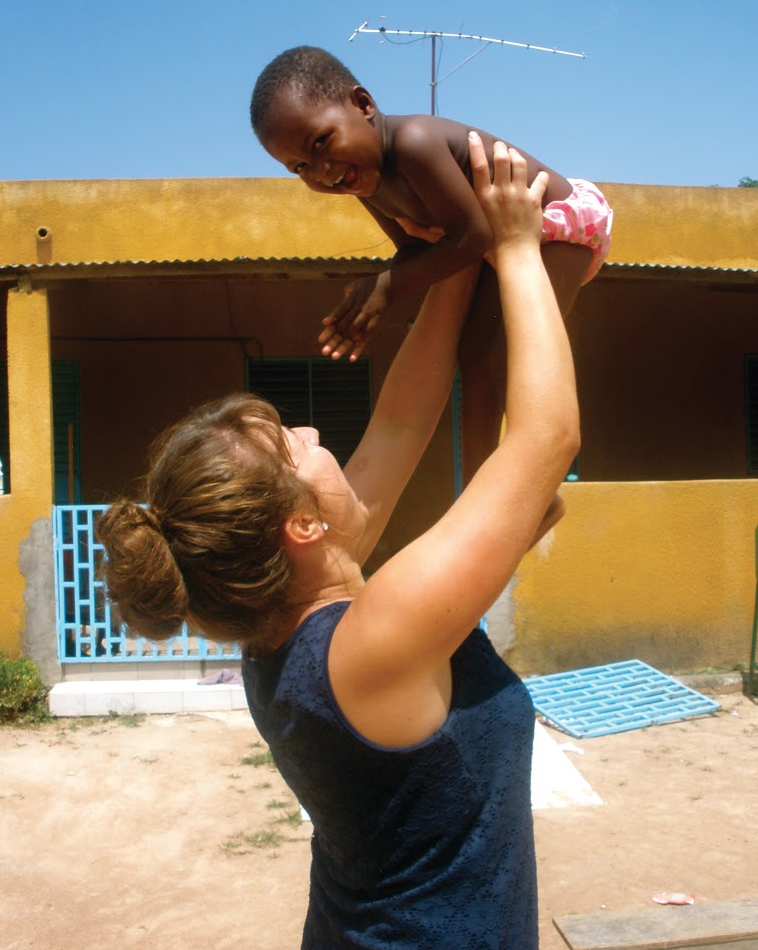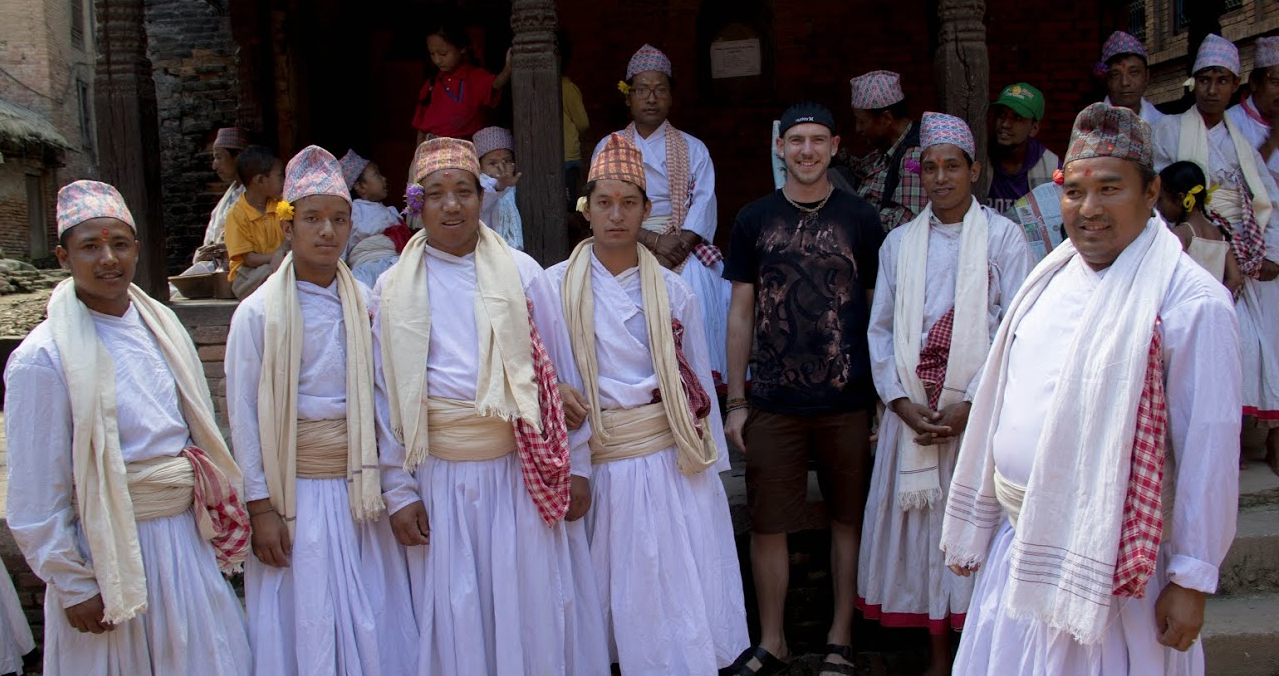Keen to make a positive difference in the world, a handful of University of Lethbridge students left their homes and families to work in developing countries this past year. What they couldn’t have known beforehand was how much they would be changed in the process.
Their journeys were facilitated in part through the President’s Grant for International Community Engagement. The grant program, funded by an anonymous donor, will give students the chance to participate in international development work in the years ahead. In its first year, the grant helped seven students make a lasting contribution in three developing countries.
A group of five nursing students received a grant for their final clinical practice at Mulago Hospital in Kampala, Uganda.
Tracey Christoffersen, Danielle Clearwater, Melissa Collins, Renae Nedza and Zoe Sultani spent three months working alongside nurses and doctors at Mulago, thanks to connections established by Dr. Jean Harrowing (BSc ’78), a nursing professor and their supervisor, when she did her doctoral research there.

(L-R) Danielle Clearwater, Zoe Sultani, Tracey Christofferson, Renae Nedza and Melissa Collins.
Soon after their arrival in Kampala in May, they began working at Mulago Hospital and learned how the health-care system operates in one of the poorest countries in the world.
“Initially, it’s very overwhelming because of the lack of resources, both financial and physical, like people and actual equipment,” says Nedza. “Once I adjusted to that, I saw how hard these nurses and intern doctors really do work and how many barriers they have to overcome. We talk about burnout, barriers, workload and staffing shortages in Canada. They have those same problems, yet a union doesn’t support them. For those men and women to come in every single day and work 10 hours a day for seven days a week, that’s something to respect.”
Resources like prescription drugs and medical supplies are limited in Uganda and one or two nurses will staff units with 40, 60 or 80 patients.
“We witnessed conditions and situations that we probably wouldn’t ever see at home. It really broadened our perspective on what kind of medicine is out there,” says Collins. “Just the simple things were appreciated by the patients and families in Africa, things that patients in Canada probably take for granted.”
Part of nursing is teaching patients how to care for themselves, says Clearwater. Without the resources available in countries like Canada, she had to improvise. While she helped patients cope better with their illnesses, she also added foundational skills to her nursing practice.
“I became more confident in my nursing judgment. My communication skills definitely flourished. I developed a sense of global health and became more assured at working within a different culture and with a diversity of clients,” she says.
Working at a small rural hospital for a week put ethical questions in the forefront of Sultani’s mind. The hospital had limited amounts of antibiotics so she and Collins, who also worked at the rural hospital, bought as many antibiotics as they
could and left them with a nurse to give to the sickest patients.
Harrowing says students go through a process when they go to Uganda. At first they’re horrified by what they see at the hospital. Then they get angry and upset before they come to accept the situation.
“Sometimes they also get to the point where they realize that witnessing it and then coming home and talking about it or even thinking about it, is the first step of creating change,” she says.
Sara Bieniada, a management student, is using her grant for an internship with Lethbridge-based Bridges of Hope, a network of organizations that work with children, families and communities to overcome poverty and injustice around the world. 

Sara Bieniada will be spending two weeks in Burkina Faso this fall.
During her internship this fall, Bieniada will work for a month in the local office and for two months in Ouagadougou, Bobo and Boura, Burkina Faso. In Lethbridge, Bieniada will help with administrative duties, conduct research and organize fundraising events. In Burkina Faso, Bieniada will help with micro-financing opportunities, teach English as a Second Language, work at village schools and help care for children at the Boura Children’s Center, a home for orphans under age two.
“This internship will be about making a positive difference in the lives of Burkinabe people. I want to learn and absorb as much as possible so I know how to most effectively plan my future endeavours around making a long-term impact. My hope is that this internship will be a springboard to the rest of my life, which I plan to spend working in an overseas development context,” she says.

Brandon McNally (third from right)
Brandon McNally, a fourth-year political science student, spent the past summer in Nepal doing a co-op work term with Environmental Camps for Conservation Awareness (ECCA). ECCA, a non-government organization, works to build sustainable communities with emphasis on agriculture, drinking water and waste management.
“I did a lot of research on different funding opportunities available for the organization. That really fit into my political science degree because a lot of international aid comes from other governments around the world,” he says. “I feel I got a broad experience in what international NGO work is like, everything from being in the field to being in the office.”
In addition to his work with ECCA, McNally conducted independent research on the Navadurga religious tradition in Tantric Hinduism. The Navadurga, or nine goddesses, are believed to be reflections of Shakti, the feminine energy. The goddesses are protectors of Bhaktapur, one of three cities in the Kathmandu Valley.
The President’s Grant for International Community Engagement awards were established by an anonymous donor to encourage and support U of L students who want to participate in international development work. The grant will provide up to $5,000 for students to spend an extended period of time working in a paid or volunteer role in a developing country. Three grants will be awarded annually. Application details.
